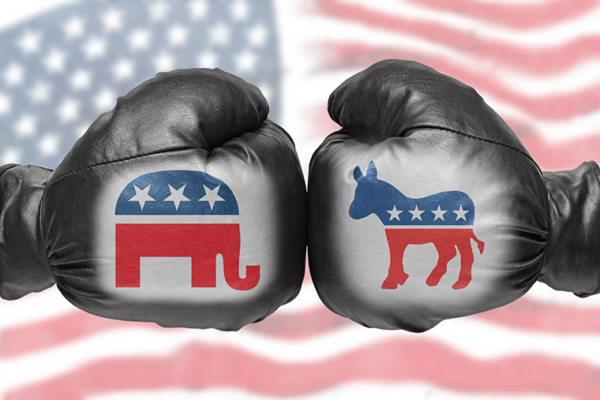The last three years have tested the strength and resiliency of American small businesses. While there are signs the economic conditions are improving — inflation has come down faster than expected and the labor market continues to add jobs — small businesses are likely to feel the pinch of rising interest rates, a looming recession threat and persistent labor shortages in 2023, according to Peter Boumgarden, the Koch Family Professor of Practice in Family Enterprise at Olin Business School at Washington University in St. Louis.

“Small businesses are a significant driver of the U.S. economy, accounting for two-thirds of net new jobs and nearly half of U.S. economic activity,” said Boumgarden, who also is director of the Koch Center for Family Business at Olin Business School.
“Understanding and addressing the challenges facing small businesses will be key to promoting long-term economic recovery. This can be done both by favorable policy conditions, but also by giving these leaders and owners the framing to know how to approach this market with agility.”
Challenge No. 1: Rising interest rates
In 2022, the Federal Reserve increased interest rates seven times to a 15-year high in an aggressive attempt to address inflation. More interest hikes are expected for 2023.
“Rising interest rates will be one of the biggest challenges for small business across sectors because it will limit their access to capital, which in the past would have been relatively easier to get,” Boumgarden said.
With the cost of borrowing increasing, Boumgarden said that many small business owners will rethink plans to expand or take on large projects that traditionally would require an injection of a business loan. In some cases, those projects may be put on hold in 2023. Or, perhaps they’ll look for other ways to fund the project, like dipping into existing cash reserves.
“Many privately held businesses have to choose on whether they prioritize growth, liquidity or control, and a change in access to capital might also shift that decision point.”
Challenge No. 2: The economy
Some economic challenges — inflation in particular — will not be felt equally across industries.
“If we enter into recessionary headwinds, you want to be thinking how sensitive your consumer is to these pressures, and how it impacts buying behavior,” Boumgarden said.
‘If we enter into recessionary headwinds, you want to be thinking how sensitive your consumer is to these pressures, and how it impacts buying behavior.’
Peter Boumgarden
Typically, the industries hit hardest — small or large — by recession are real estate, construction, manufacturing, retail, leisure and hospitality, Boumgarden said.
“What makes these industries particularly vulnerable is that consumers are more sensitive to price changes. They have the choice to push off the purchase, cut back or find cheaper alternatives, all of which can cut into your top line,” he said.
Restaurant owners, for example, already are feeling the effects of rising food prices and wage growth, he said. With a relatively small profit window, many have no choice but to raise menu prices. But that means cost-conscious consumers will have to make choices like eating out less and choosing less expensive chain restaurants.
“If your buyer is unwilling to pay more, you have to eat the higher cost of goods, and thus live with tighter margins. All of this implies the need for the business owner to play out the chess match of how these subtle shifts will impact the financial outcomes of their business,” Boumgarden said.
Challenge No. 3: Labor
“We’ve all heard people gripe, ‘nobody wants to work anymore,’ but the problem is actually much more complex,” Boumgarden said.
“Research at the Brookings Institution suggests many systemic issues, including lower immigration, lack of child care, underinvestment and uneven investment in talent, discrimination and more, are impacting the labor pool available to small businesses. While small businesses can do small things to address these issues, policy innovation is needed as well.”
Economists believe there is a 70% chance of recession in 2023, according to a recent Bloomberg study. Ironically, this could prove to be beneficial for low-wage employers most impacted by current labor shortages. Recessions tend to push more people into the job market and will cool rising wages.
Small business advantage
The coming year will undoubtedly be challenging; however, small businesses have some advantages over large corporations. If they play their cards right, Boumgarden said they may face less disruption in the coming year. For starters, small businesses have the advantage of being nimble — a skill many perfected during the pandemic.
“Because they’re not bogged down by bureaucracy, small businesses are often able to experiment and pursue new opportunities more easily,” Boumgarden said. “If I were a small business owner, I would be asking what kinds of small experiments I can run in the next six months that help me address the coming headwinds.”
“Compared with publicly traded corporations, smaller, privately held companies also have the benefit of being able to give their business plans time to develop with a longer time horizon for performance. They do not have investors breathing down their neck expecting an immediate return, and thus might benefit from this patient capital. During times of economic downturn, this can be a very big advantage.”
Small businesses also have another priceless advantage over large corporations: public trust.
“Consumers are increasingly skeptical and critical of large businesses, especially big tech. Small businesses, on the other hand, enjoy significantly higher levels of trust among consumers,” Boumgarden said.
“The opportunity for small business is to find ways to highlight and leverage that trust to differentiate them from larger competitors. Think shopping at your local corner bookstore rather than ordering from Amazon. Amazon may be able to offer two-day shipping, but local bookstores can offer the personal touches like personal reviews and community meeting spaces. Plus, consumers like knowing they support businesses that support their local community. The opportunity for these owners is to leverage trust into business.”
Local communities can help
“Building regional support groups to help share best practices is one way local governments and business communities can help small businesses thrive,” Boumgarden said.
“The research is also very clear on the value of educational interventions, so finding ways for universities to offer support for the educational needs of these companies to increase their ‘professionalism’ can really drive the economic growth of these companies, and thus our regions,” he said.


